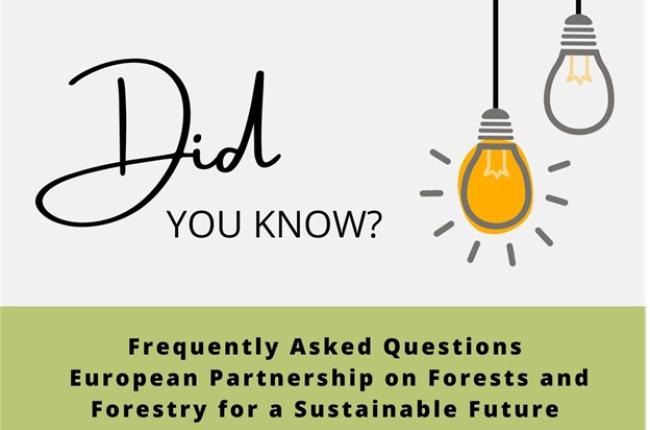- A stable and long-term framework
Any successful EU Framework on Forest Monitoring must build upon evidence-based science, existing reporting schemes, in particular national forest inventories (NFI), and the experience of Forest Focus. For long-term sustainability, a stable system is required, including durable guarantees for the resources needed.
- Consideration for legal basis & subsidiarity
EU-wide forest reporting could bring an added value to EU policy making on condition that it is fully supported by the MS and is based on ground data collected by NFI.
The EU has shared competence with MS on different sector policies with an impact on forests. The scope of the possible EU framework should be in line with such competences based on the TFEU. In this context, whereas biodiversity or climate change could fit into the scope, this is not the case of forest management per se.
- Identification of specific objectives for policy making
The lack of harmonised data does not pose a threat for EU forests. However, improved reporting could possibly ease policy monitoring for EU forest-related policies.
Therefore, the precise EU policies' objectives for which the reporting is needed, must be first clearly identified. Second, the added value and relevance of the proposal should be assessed regarding these objectives accompanied by a robust financial impact assessment.
- Identification of required data & possible gaps
Before setting new reporting requirements, a comprehensive assessment of existing data sources at MS and regional levels must be done to avoid duplication of work and additional burden. In some cases, current reporting might have to be improved in quality to move away from reliance on experts’ judgement.
Existing data might not yet be harmonised at EU-level, but they are fitted to the local conditions. Harmonisation of reporting implies loss of granularity, this can’t be neglected. Relevant timescales must be used to report in a meaningfully on long-term forest cycles.
Based on the defined objectives, factual data gaps must be identified by and with MS and different options to fill these data should be considered.
- Reporting, data collection methods & their processing
Any remote sensing data collection must be cross checked with field observations and streamlined contacts with relevant national or regional administration and experts. This is also valid for any interpretation of results to avoid misinterpretation. For this, the responsibility of each institution, administration or agency, whether European, national or regional must be clarified.
Different socio-economic and environmental conditions of EU forests imply that, even if based on harmonised reporting, results might not be comparable.
- Resources (finance and human) & Access to data
Reporting requires both human and financial resources. To avoid free riders, the financial framework underpinning both data collection and analysis must be well established.
Existing data isn’t per se free of charge nor per se open source. If data access is required by an institution not contributing to the collection, a clear agreement should be set on the data requested and its purpose.
Spatial and time resolution as well as data accessibility will also need to duly consider and respect privacy rules.
- Strategic Plans
No information is available in the call for evidence regarding the foreseen objectives and procedure of the national Strategic Plans. Before assessing the added value of these Plans, their purpose and value added must be clarified, considering existing national forest programmes or strategies. This work should be carried out in full cooperation with the MS and relevant regional authorities.
- Illegal logging
The envisaged EU Framework could support the implementation of the future Deforestation Regulation, as part of its Forest Observatory. To identify swiftly logging taking place within or outside of relevant legal framework, country specific synergies have to be developed




